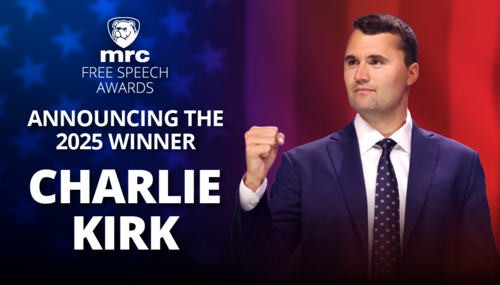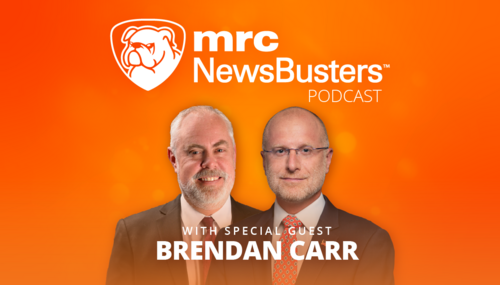In the midst of discussing the president's handling of the ISIS insurgency in Iraq and Syria on his Monday evening edition of Hardball, MSNBC's Chris Matthews railed against President Obama's use of the term "homeland" to describe America's home soil.
After watching a clip of President Obama using the term, Matthews bestrode his hobby horse and promptly beat him to death with the cudgel of his spittle-laced rant:
I am very uncomfortable with the phrase homeland. It strikes me as totalitarian. It's a term used by the neocons, they love it. It suggests something strange to me. Like, who else are we defending except America? Why don't you just say America? Why doesn't he say we defend against attacks against this country, as if we're facing some existential Armageddon threat from these people? Do you buy the phrase homeland as a reference to Amer-? I never heard it growing up, never heard it in my adulthood. It's a new word. Why are we using it? Is there some other place we're defending? What are we talking about when we say homeland?! What's it about, this new lingo. WMD. Homeland. It's the language of the neocons. It's a language to get us further into wars!
Matthews's ignorance would be astounding if his ignorance were not so commonplace. Far from a newly-minted word, "homeland," according to Merriam-Webster's dictionary, goes back as early as 1670 and means ""the country where someone was born or grew up" or "a usually large area where a particular group of people can live."
What's more, far from being a "neo-con" term, a search of UC Santa Barbara's American Presidency Project database shows numerous U.S. presidents of both major parties have used the term "homeland" or "homelands" in their speeches, including Matthews heroes like FDR and JFK as well as Bill Clinton.
To be fair, prior to President George W. Bush, the instances of the term "homeland" in those speeches involved other countries. As a Democrat of Irish Catholic heritage, Mr. Matthews should appreciate this example from Franklin Roosevelt's St. Patrick's Day radio address in 1937:
Yes, I am always thrilled by St. Patrick's Day, the day that Irishmen the world over garner to their hearts and souls their tenderest memories, recall the ancient glories of Erin and renew their allegiance to the great Apostle of fifteen hundred years ago. Through all the vicissitudes of these fifteen centuries, through tramplings and burnings, through war and slaughter, in times of plenty and in times of famine—Ireland, and the descendants of Ireland, have been faithful to the heritage of St. Patrick.
The same devotion and steadfastness to the cause of liberty within the homeland itself, has accompanied the sons and daughters of Ireland wherever they have gone, even to the far corners of the earth. Our own country owes a great debt to them for their contribution to its upbuilding. They have borne arms in our wars both in the colonial and the national periods. In commerce, agriculture, and industry, in the arts and sciences, in literature, in the professions and in the councils of state they have shown special aptitude and outstanding talent.
Of course, Matthews wasn't alive then, but he was certainly alive and politically award in December 1962 -- Matthews was 17 -- when his hero John F. Kennedy used the term "homeland" in a speech honoring the heroic but doomed efforts of Cuban patriots in the Bay of Pigs fiasco:
All of you members of the brigade, and members of their families, are following an historic road, one which has been followed by other Cubans in other days, and, indeed, by other patriots of our hemisphere in other years--Juarez, San Martin, Bolivar, O'Higgins--all of whom fought for liberty, many of whom were defeated, many of whom went in exile, and all of whom came home.
Seventy years ago Jose Marti, the guiding spirit of the first Cuban struggle for independence, lived on these shores. At that time in 1889, the first International American Conference was held, and Cuba was not present. Then, as now, Cuba was the only state in the hemisphere still controlled by a foreign monarch. Then, as now, Cuba was excluded from the society of free nations. And then, as now, brave men in Florida and New York dedicated their lives and their energies to the freedom of their homeland.
The brigade comes from behind prison walls, but you leave behind you more than six million of your fellow countrymen who are also in a very real sense in prison, for Cuba is today, as Marti described it many years ago, as beautiful as Greece, and stretched out in chains--a prison, moated by water.
Decades later, President Clinton would make reference to the Irish homeland in St. Patrick's Day addresses.
Matthews, you may recall, once worked for Jimmy Carter as a speechwriter. Well, here's an occasion when Carter used the term "homeland," in reference to the Palestinians having a right to one. From a May 26, 1977 presidential press conference:
Q. Mr. President, on March 9, you talked about the idea of Israel withdrawing to her '67 borders, with only minor adjustments. Is that still your position, and is there any way that Israel could retain the West Bank of the Jordan and make that fit in the definition of "minor adjustments"?
THE PRESIDENT. That is still my position, although I might add again that the United States, including myself as President-we do not have a Middle Eastern settlement plan, but the basic premises have been spelled out very clearly.
In the United Nations resolutions that have been passed, coming from the Security Council, voted on and supported by our Government--and these have been binding policies of the Government--they do include the right of the Palestinians to have a homeland, to be compensated for losses that they have suffered. They do include the withdrawal of Israel from occupied territories from the 1967 war, and they do include an end of belligerency and a reestablishment of permanent and secure borders.
As far as I can tell from my search of UCSB's presidential papers project, George W. Bush was the first American president to extensively use the term "homeland" in reference to American soil. That said, Bush's father, George H.W. Bush -- no "neocon" he -- on at least one occasion did refer to American servicemen as serving to protect the American homeland. From a Veterans Day speech in 1991:
From our fiery birth in 1776 to freedom's latest triumphs in the Persian Gulf, America's veterans have always answered the call and given their all whenever tyrants and despots imperiled freedom and democracy. They called World War I "the war to end all wars," but that was not to be. The Earth was engulfed a second time and Americans of my generation rose up again to defend their homeland and liberate two continents. Fifty years later the memorial to World War II veterans is all around us, an America strong and proud, her proud example lighting the way to liberty.
In November 1991, Chris Matthews was working as the San Francisco Examiner's Washington, D.C., bureau chief.




